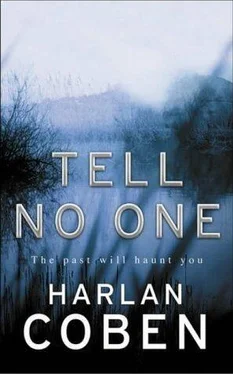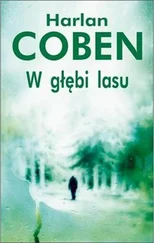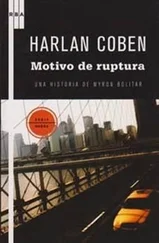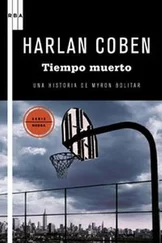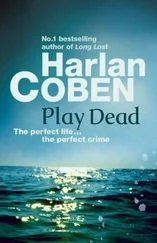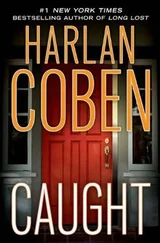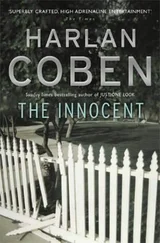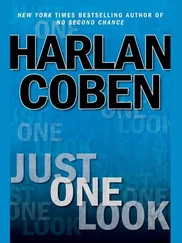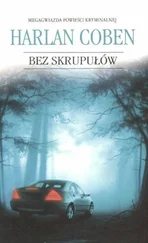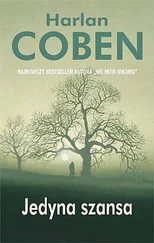"How long after did she tell you?"
"After the accident?"
"Yeah, Doc, after the accident."
"I don't know. Two, three days maybe."
"You two were married by then?"
"For just a few months."
"Why didn't she tell you right away?"
"She did. I mean, as soon as I got home. I guess she didn't want to worry me."
"I see," Carlson said. He looked at Stone. They didn't bother masking their skepticism. "So did you take these pictures, Doc?"
"No," I said. As soon as I did, I wished I hadn't. They exchanged another glance, smelling blood. Carlson tilted his head and moved closer.
"Have you ever seen these pictures before?"
I said nothing. They waited. I thought about the question. The answer was no, but… where did they get them? Why didn't I know about them? Who took them? I looked at their faces, but they gave away nothing.
It's an amazing thing really, but when you think about it, we learn life's most important lessons from TV. The vast majority of our knowledge about interrogations, Miranda rights, self-incriminations, cross-examinations, witness lists, the jury system, we learn from NYPD Blue and Law amp; Order and the like. If I tossed you a gun right now and asked you to fire it, you'd do what you saw on TV. If I told you to look out for a "tail," you'd know what I'm talking about because you'd seen it done on Mannix or Magnum PI .
I looked up at them and asked the classic question: "Am I a suspect?"
"Suspect for what?"
"For anything," I said. "Do you suspect that I committed any crime?"
"That's a pretty vague question, Doc."
And that was a pretty vague answer. I didn't like the way this was going. I decided to use another line I learned from television.
"I want to call my lawyer," I said.
Idon't have a criminal lawyer – who does? – so I called Shauna from a pay phone in the corridor and explained the situation. She wasted no time.
"I got just the person," Shauna said. "Sit tight."
I waited in the interrogation room. Carlson and Stone were kind enough to wait with me. They spent the time whispering to each other. Half an hour passed. Again the silence was unnerving. I know that was what they wanted. But I couldn't stop myself. I was innocent, after all. How could I harm myself if I was careful?
"My wife was found branded with the letter K," I said to them.
They both looked up. "Pardon me," Carlson said, craning his long neck back in my direction. "You talking to us?"
"My wife was found branded with the letter K," I repeated. "I was in the hospital after the attack with a concussion. You can't possibly think…" I let it hang.
"Think what?" Carlson said.
In for a penny, in for a pound. "That I had something to do with my wife's death."
That was when the door burst open, and a woman I recognized from television stamped into the room. Carlson jumped back when he saw her. I heard Stone mumble "Holy shit" under his breath.
Hester Crimstein didn't bother with intros. "Didn't my client ask for counsel?" she asked.
Count on Shauna. I had never met my attorney, but I recognized her from her stints as a "legal expert" on talk shows and from her own Crimstein on Crime program on Court TV. On the screen Hester Crimstein was quick and cutting and often left guests in tatters. In person, she had the most bizarre aura of power, the kind of person who looks at everyone as though she were a hungry tiger and they were limping gazelles.
"That's right," Carlson said.
"Yet here you are, all nice and cozy, still questioning him."
"He started talking to us."
"Oh, I see." Hester Crimstein snapped open her briefcase, dug out a pen and paper, and tossed them onto the table. "Write down your names."
"Pardon?"
"Your names, handsome. You know how to spell them, right?"
It was a rhetorical question, but Crimstein still waited for an answer.
"Yeah," Carlson said.
"Sure," Stone added. "Good. Write them down. When I mention on my show how you two trampled my client's constitutional rights, I want to make sure I get the names right. Print plainly, please."
She finally looked at me. "Let's go."
"Hold up a second," Carlson said. "We'd like to ask your client a few questions."
"No."
"No? Just like that?"
"Exactly like that. You don't talk to him. He doesn't talk to you. Ever. You two understand?"
"Yes," Carlson said.
She turned her glare to Stone.
"Yes," Stone said.
"Swell, fellas. Now are you arresting Dr. Beck?"
"No."
She turned in my direction. "What are you waiting for?" she snapped at me. "We're out of here."
Hester Crimstein didn't say a word until we were safely ensconced in her limousine.
"Where do you want me to drop you off?" she asked.
I gave the driver the clinic's address.
"Tell me about the interrogation," Crimstein said. "Leave out nothing."
I recounted my conversation with Carlson and Stone as best I could. Hester Crimstein didn't so much as glance in my direction. She took out a day planner thicker than my waist and started leafing through it.
"So these pictures of your wife," she said when I finished. "You didn't take them?"
"No."
"And you told Tweedledee and Tweedledum that?"
I nodded.
She shook her head. "Doctors. They're always the worst clients." She pushed back a stand of hair. "Okay, that was dumb of you, but not crippling. You say you've never seen those pictures before?"
"Never."
"But when they asked you that, you finally shut up."
"Yes."
"Better," she said with a nod. "That story about her getting those bruises in a car accident. Is it the truth?"
Pardon me?"
Crimstein closed her day planner. "Look… Beck, is it? Shauna says everyone calls you Beck, so you mind if I do the same?"
"No."
"Good. Look, Beck, you're a doctor, right?"
"Right."
"You good at bedside manner?"
"I try to be."
"I don't. Not even a little. You want coddling, go on a diet and hire Richard Simmons. So let's skip all the pardon-mes and excuse-mes and all that objectionable crap, okay? Just answer my questions. The car accident story you told them. Is it true?"
"Yes."
"Because the feds will check all the facts. You know that, right?"
"I know."
"Okay, fine, just so we're clear here." Crimstein took a breath. "So maybe your wife had a friend take these pictures," she said, trying it on for size. "For insurance reasons or something. In case she ever wanted to sue. That might make sense, if we need to peddle it."
It didn't make sense to me, but I kept that to myself.
"So question uno: Where have these pictures been, Beck?"
"I don't know."
"Dos and tres: How did the feds get them? Why are they surfacing now?"
I shook my head.
"And most important, what are they trying to nail you on? Your wife's been dead for eight years. It's a little late for a spousal battery charge." She sat back and thought about it a minute or two. Then she looked up and shrugged. "No matter. I'll make some calls, find out what's up. In the meantime, don't be a dimwit. Say nothing to anyone. You understand?"
"Yes."
She sat back and thought about it some more. "I don't like this," she said. "I don't like this even a little bit."
On May 12, 1970, Jeremiah Renway and three fellow radicals set off an explosion at Eastern State University's chemistry department. Rumor had it from the Weather Underground that military scientists were using the university labs to make a more powerful form of napalm. The four students, who in a fit of stark originality called themselves Freedom's Cry, decided to make a dramatic albeit showy stand.
Читать дальше
